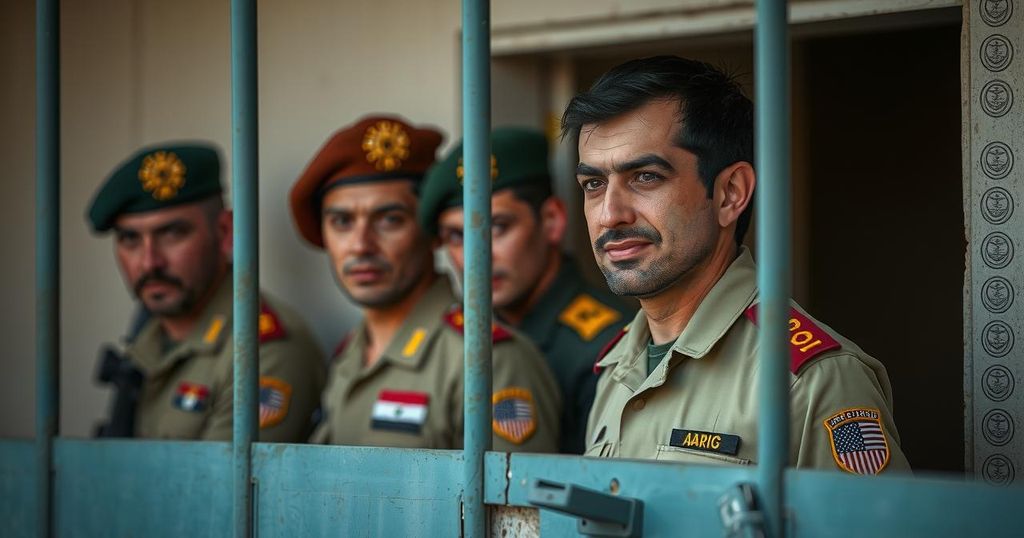Interpol has issued a warrant for Jamil Hassan, head of the Syrian Air Force Intelligence, for war crimes. This comes as Lebanon detains dozens of former Syrian regime officers, including members of the Fourth Armoured Division, who fled Syria. The Lebanese government is coordinating with HTS to manage security issues at the border amid increasing tensions.
The Lebanese authorities have recently apprehended numerous Syrian regime officers, including members of the notorious Fourth Armoured Division, following their illegal entry into Lebanon after fleeing the Syrian conflict. Interpol has issued a warrant for Jamil Hassan, the head of the Syrian Air Force Intelligence, urging Lebanese officials to arrest him if he enters the country. The American cable accuses Hassan of war crimes and genocide against the Syrian population.
Sources indicate that dozens of former Syrian military personnel have sought refuge in Lebanon, amidst fears for their safety due to past allegiances to the ousted regime. Reports confirm that over 20 officers, including those from the Fourth Division, have been detained for selling military weapons at significantly reduced prices in Lebanon. The Lebanese Prime Minister Najib Mikati is actively coordinating with Hayat Tahrir al-Sham (HTS) to address common security concerns along the border.
These developments highlight the ongoing complexities of the Syrian conflict’s aftermath and Lebanon’s role as a haven for former regime members, as well as the international community’s scrutiny towards key figures within the Assad regime.
The relationship between Lebanon and the Syrian regime has long been intricate, particularly following the uprising against Bashar al-Assad’s government. Lebanon has become a refuge for various Syrian military officials, many of whom were involved in the regime’s oppressive tactics during the civil war. As of late, Lebanon is grappling with the ramifications of these defector officers, some of whom are being pursued for war crimes and other serious allegations. Moreover, the active cooperation between Lebanese authorities and HTS signifies a shifting dynamic in regional security relations.
In conclusion, the arrest of former Syrian regime officers in Lebanon underscores the ongoing fallout from the Syrian civil war and the complex interplay between Lebanese security and defector military personnel. The issuance of an Interpol warrant against a prominent intelligence chief reflects international concerns regarding accountability for war crimes. This situation further illustrates Lebanon’s precarious position as it navigates the implications of its neighbor’s tumultuous political landscape.
Original Source: www.newarab.com






